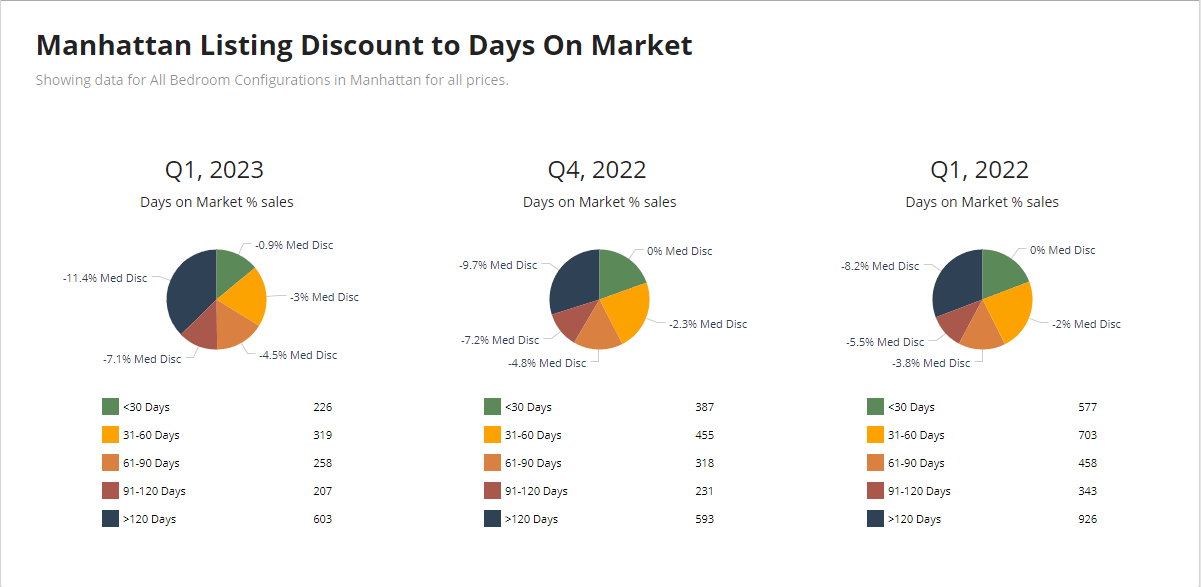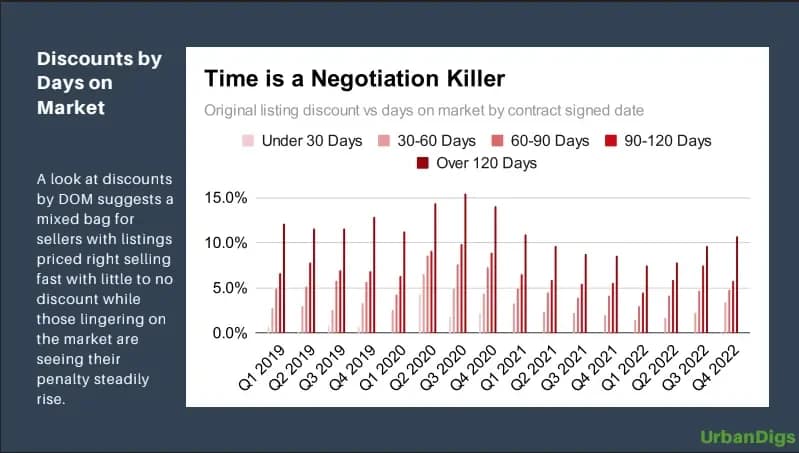Watch this content HERE
Time is a negotiation killer. And by time, I mean the number of days the listing has been on the market.
Data shows that in the first 6 months, a listing is “live”, the average discount on the purchase price is about 2-2.5%. After 6 months, that number accelerates to anything between 3.5 and 5% per every 30 days! NYC buyers tend to think that the longer a listing lingers on the market, the higher the probability that something is wrong with it, and so expect a discount.
Source: UrbanDigs
So how do we look at days on market in a broader context?
First of all, you can look at it traditionally: how many days has the listing been on the market from the day it was published until the day the contract was signed? A better way to look at it, though, could be from the last time the price dropped until the day it went into contract. This could indicate the time at which the property saw real activity, and the price became competitive. This is especially true on the higher end of the market, where properties tend to linger on the market longer.
Days on the Market Is a Meaningless Statistics Without Context.
You have to look at the whole picture: just because a listing has lingered on the market, doesn’t mean it’s no good: it could have been priced incorrectly at the start, the market could have been different, and so could the unit, the listing broker, or the seller’s motivation. All of these factors can change while a listing’s days on the market add up. Sometimes there are outside circumstances that can affect the attractiveness of the listing: was it listed during a distracting time like election season? Is there a new development going up that will obscure the views? Or maybe there was a tenant who blocked access, or a low financing requirement, making the initial downpayment high? It is best to ask what the situation was when the apartment was listed to get a better perspective.
A Deal Could Have Fallen Through.
Don’t forget that until the contract is fully signed, the clock keeps ticking. A more exclusive building, for example, could really limit the days and times a broker can show, already slowing the process. On top of that, while an offer is being negotiated other changes can occur, like a rise in maintenance costs, that will push the buyer out of the race. During this entire time, the property is on the market, accumulating days.
How Can You Restart the Clock?
There are only two ways to reset the clock: marking the unit as officially sold and closed, or going off-market. In New York City, taking the listing off the market for 90 days will reset the days on market count to zero. But you want to make sure you have a real reason to do so, such as unit renovations, or scaffolding coming down in the front of the building.
Source: Brick Underground














































































